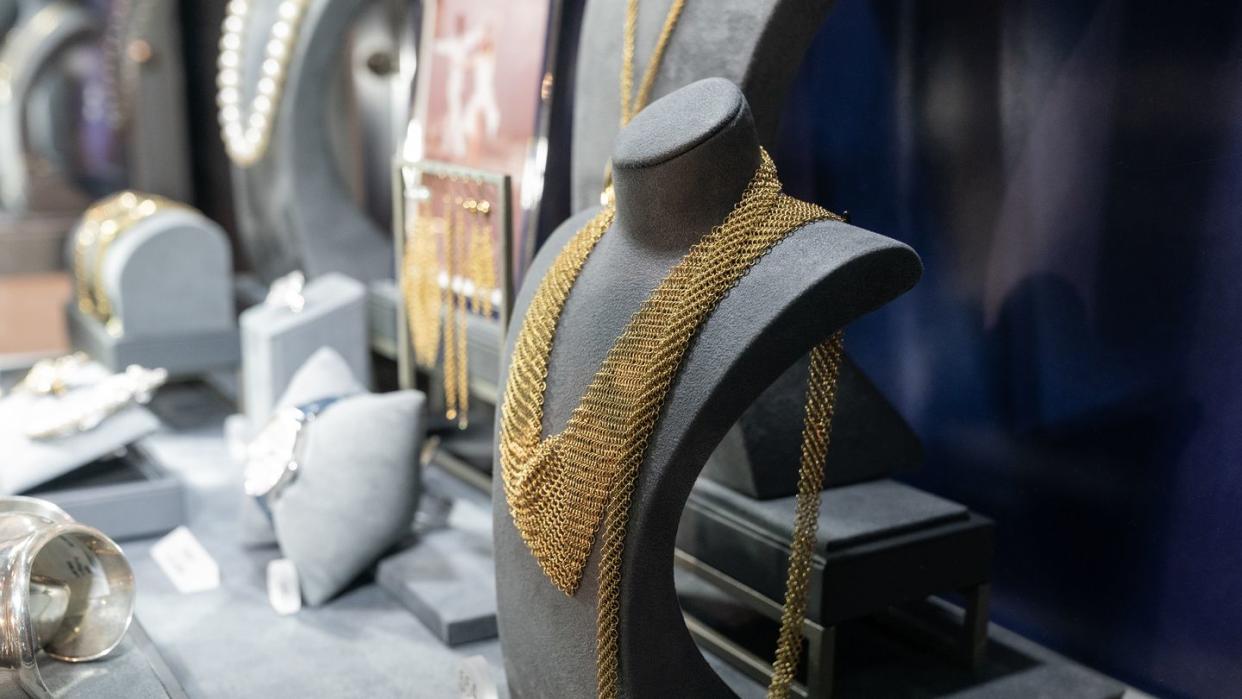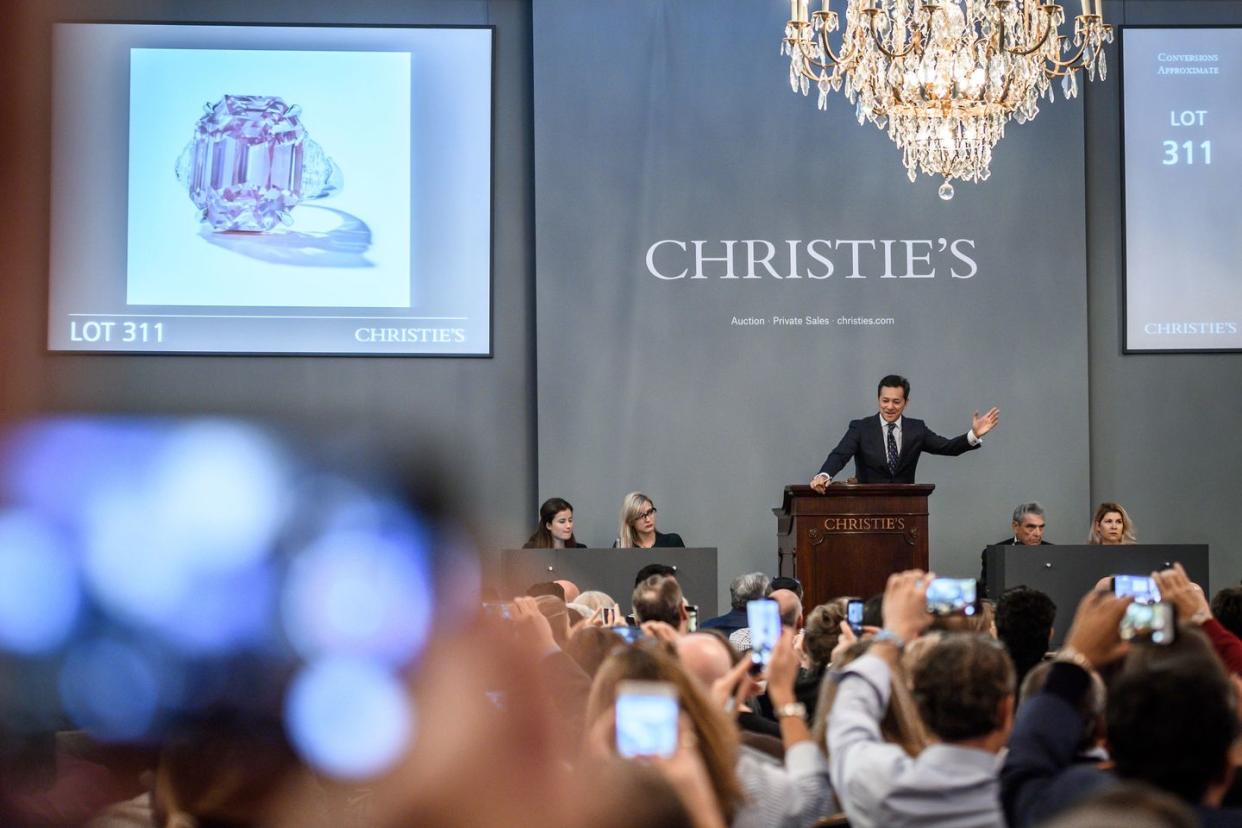How to Shop for Antique Jewelry at Auctions and Shows Like a Professional

Chalk it up to the eternal thrill of the hunt: When a highly publicized auction goes live or a well-known antique show pops back up, they usually feature highly collectible jewels that you want to make sure you're ready to snag at a moment's notice.
However, there's an art to having enough know-how when it comes to shopping for antique jewelry, so that you're making wise decisions while also staying true to your personal style. Vice President and Senior Specialist of Jewelry at Christie’s, Claibourne Poindexter, breaks down the best ways to approach these high-pressured, exciting avenues of collecting jewels and gemstones.
How to Buy Jewelry at Auction

Know yourself and the key players.
"I would say go to an auction or show and just observe," Poindexter says. "Don’t buy anything your first time around. Find out what you really like, and find someone in the jewelry business who you trust to advise you. They can help you navigate potential pitfalls and help minimize mistakes that can occur when buying vintage or signed jewels, diamonds, and gemstones. Of course, only buy what you love: I never think of jewelry as an investment, but as something which is meant to bring happiness to the owner."
Identifying a certain gemstone or period or style of jewelry that you are drawn to will allow you to research and consult an expert on what to look for and what to avoid the next time you're shopping.
Study the design.
"It is said time and time again, but it is very true: Turn the jewel over first and see how it is made in the back," advises Poindexter. "That will tell you immediately the quality of a piece of jewelry, and, in some cases, the period in which it was made."
Poindexter says that he avoids poorly made pieces or ones that have low-quality stones. He adds, "I don’t mind stones that are not perfect, but if they have inclusions or damage that is eye-visible—which affects either the wearability or the beauty of a piece and it cannot be repaired—that is usually something that I avoid immediately."
Create your plan of attack.
"Auctions and antique shows are very different from one another," notes Poindexter. "An antique show is where everything has a set price, and, in some cases, you can negotiate from there." He adds, "At an auction, you are competing with any other interested parties, so the price usually starts low and only goes up from there."
The person willing to pay the highest price at an auction "wins," whereas Poindexter says that often "the first person to start the conversation about buying something is usually the triumphant purchaser at a show."
So, how do you know that you're paying a fair price? "This is where having someone who works in the jewelry business can be a great advantage to potential buyers," says Poindexter. "They can advise on what the correct price is during, say, an antique show, and they can let you know what they think a piece is worth in an auction." He adds "In this case, a jewelry teacher is the best asset one can possess! And of course, don’t be afraid to ask people questions."
You Might Also Like
